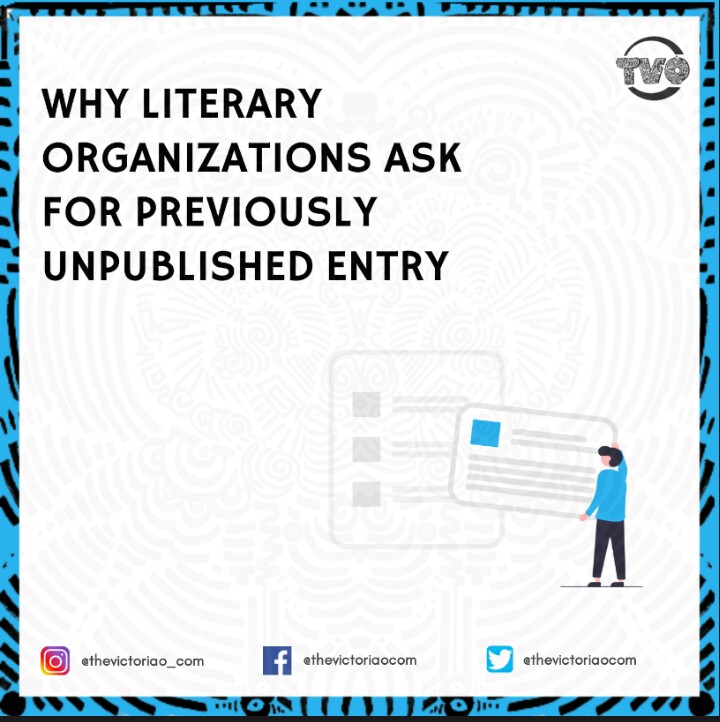
A number of people still view publications from the stand point of what it was some years back when the only thing considered as published are those ones put down in black and white as hard copies. This would still remain the truth in the absence of evolving technology.
The evolution of technology has undeniably changed the face of everything we do as humans. Over time, technology has become the measure of value for our thoughts, actions, decisions and even our ability to be creative as writers.
Publication is a noun derived from the Latin word “publicare” which means to make something public. Vocabulary.com defines a publication as something made to communicate with the public. This explains that works posted on a website, blog, social media page, an open e-literary journal or any other media, which is accessible by the public, is a published work.
It is no news that most literary organizations clamor for unpublished entries when they call for submissions. Most people wonder why this is now a governing principle in the literary world.
Read also: How To Win A Literary Competition
Why Do Literary Organisations Call For Unpublished Entries
Imagine a situation where your aunt promised to get you a pair of shoes. I’m sure you will be excited. Now, imagine her giving you the same shoe your cousin wears or the exact shoe you got two months ago. That will definitely be way lower than what you expected. Just like you, organizations need spanking new, unconventional, exclusive, and original entries.
An unpublished entry is a test of creativity. Literary organizations believe that you as a creative should be able to prove and defend your creativity at any given time.
The need to stay away from copyright infringement is one major reason why any literary organization will insist on having a piece that has never been published.
Nobody goes after what he already has, we only go after things that aren’t within our reach. A reader who has read your already published entry will not be enthusiastic about seeing the same thing on another space. Literary organizations believes readers are hungry men and they want to feed their hunger with something unusual every time readers turn to them for milk.
Thanks for reading through!

